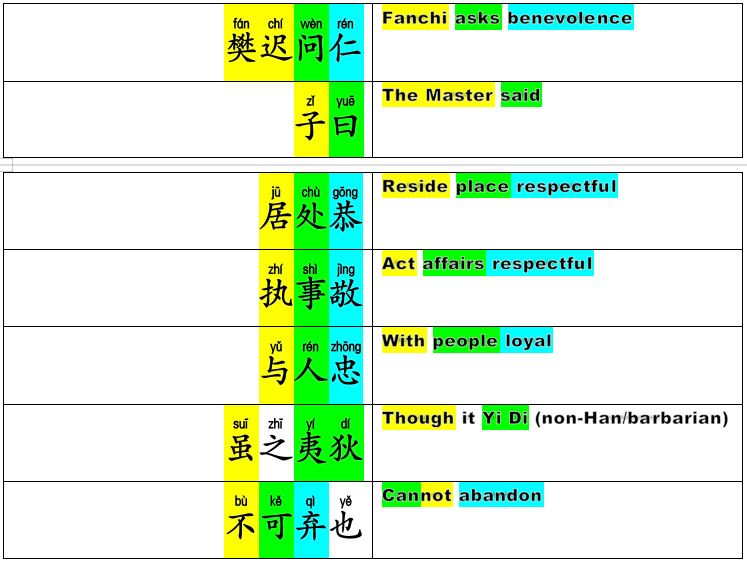Analects 13.20
Original Text:
子贡问曰何如斯可谓之士矣子曰行己有耻使于四方不辱君命可谓士矣曰敢问其次曰宗族称孝焉乡党称弟焉曰敢问其次曰言必信行必果踁踁然小人哉抑亦可以为次矣曰今之从政者何如子曰噫斗筲之人何足算也
Translation:



Other Translations:
Zigong asked, “What does a person have to be like before he could be called a true scholar-official?”
The Master said, “Conducting himself with a sense of shame, and not dishonoring his ruler’s mandate when sent abroad as a diplomat—such a person could be called a scholar-official.”
“May I ask what the next best type of person is like?”
“His lineage and clan consider him filial, and his fellow villagers consider him respectful to his elders.”
“And the next best?”
“In his speech, he insists on being trustworthy, and with regard to his actions, he insists that they bear fruit. What a narrow, rigid little man he is! And yet he might still be considered the next best.”
“How about those who today are involved in government?”
The Master exclaimed, “Oh! Those petty functionaries are not even worth considering.”
Confucius, & Slingerland, E. (2003). Analects: With selections from traditional commentaries. Hackett Publishing.
Zigong asked, How should one conduct himself in order to be called a man of station?
The Master said, Be mindful of anything shameful in your actions. When sent on a mission to other regions in the four directions, do nothing to disgrace your ruler’s commands. Then you can be called a man of station.
And may I ask about a person on the next level?
The Master said, Among the members of his clan, he is praised for his filial conduct. In his village or community, he is praised for his brotherliness.
And may I ask about the next level?
The Master said, Their words are certain to be trustworthy; their actions, certain to be decisive. But petty men just plodding along can reach this level.
And how would you rate those who handle government affairs these days?
The Master said, Ah—peck and bushel people! Not even worth sizing up!
Confucius, & Watson, B. (2007). The Analects of Confucius. Columbia University Press.










